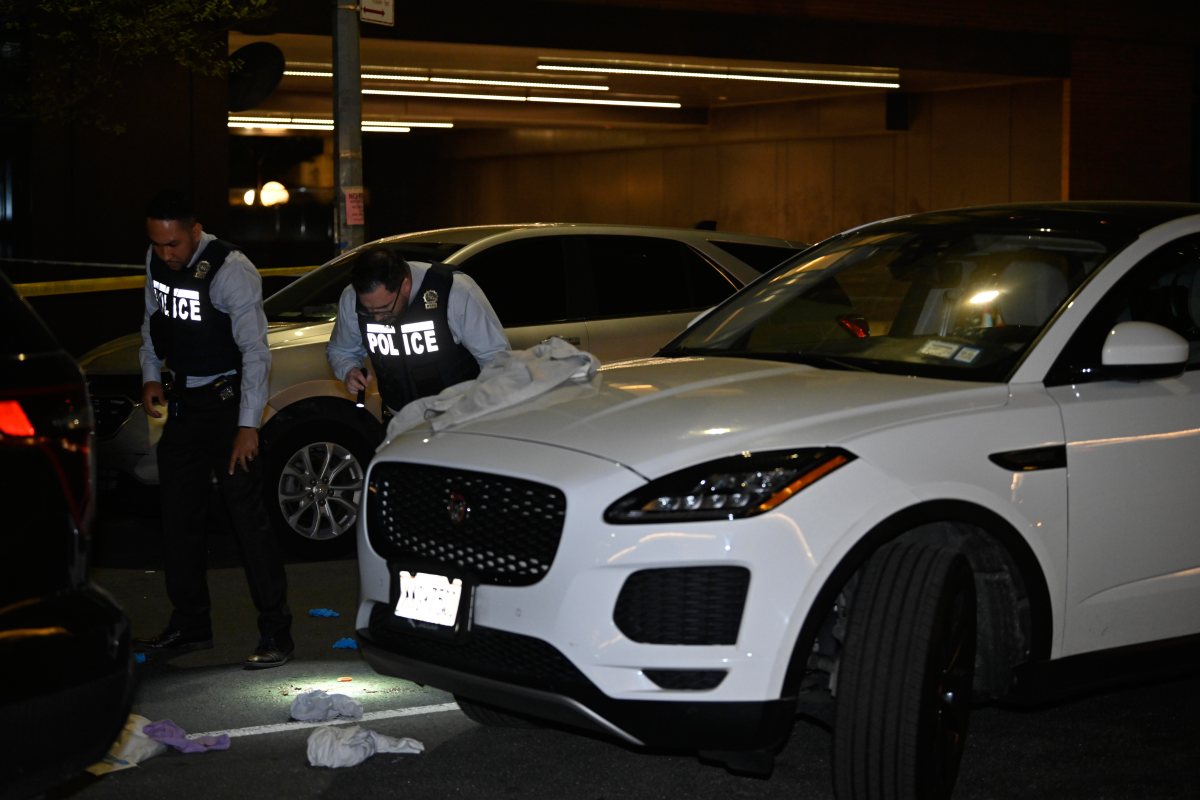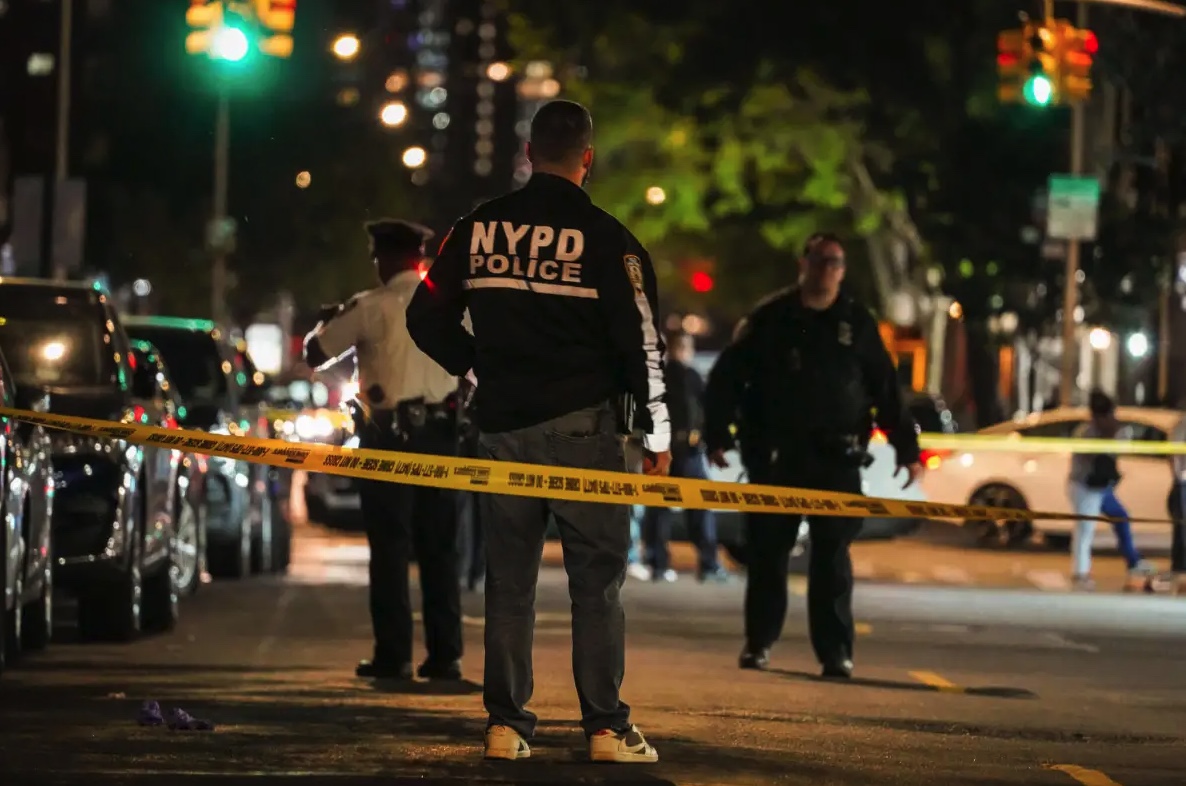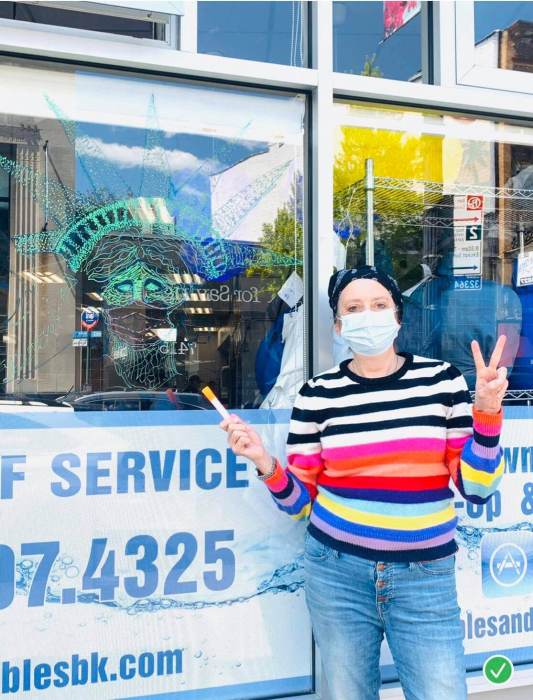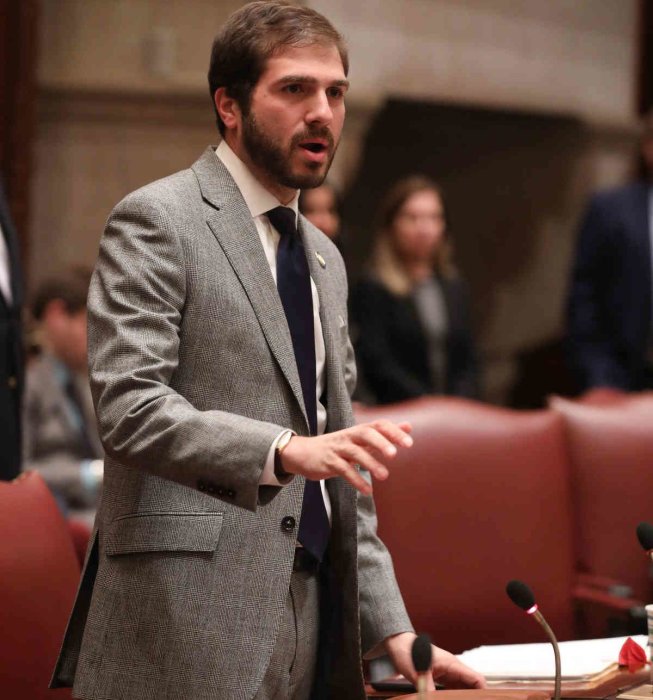Assemblymember-elect Lester Chang was sworn into the New York State Assembly and cast his first vote this week, even as his colleagues continue to debate his future in state government after an investigation cast doubts on whether he meets constitutional residency requirements.
“Huge congratulations to Assemblyman Lester Chang (R-C, Brooklyn) on being sworn in and seated in the New York State Assembly today,” said Brooklyn Conservative Party chair Gerard Kassar in a Jan. 3 statement. “Assemblyman Chang is the first Asian-American from Brooklyn to be elected to state office. The Conservative Party salutes Assemblyman Chang, a retired Navy Reservist, on his historic accomplishment. We look forward to working with him as he fights to make New York safer, more affordable, and more accountable in the years ahead.”
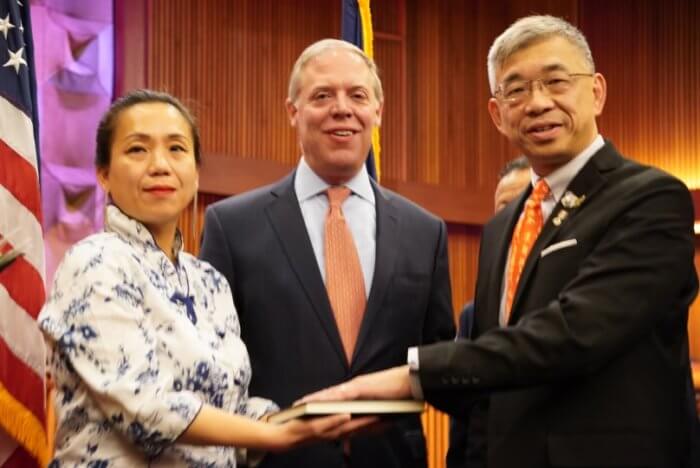
Chang, a Republican and the first Asian-American to be elected to the Assembly from Assembly District 49, beat out 30-year Democratic incumbent Peter J. Abbate Jr. by a slim margin in November. Within days, questions were raised as to whether he had lived in Brooklyn for a full year before the election, as is required by the state constitution.
Last month, Assembly Speaker Carl E. Heastie ordered the body’s Judiciary Committee complete a thorough investigation of Chang’s residency by the end of the year. That report was passed on to the incoming Assembly, which met in Albany for the first time in an official capacity on Jan. 4. According to New York 1 reporter Zack Fink, the Assembly Majority met for several hours on Jan. 3 to discuss whether or not to seat Chang based on the findings of the report, but did not reach a consensus.
“Lester Chang was elected and by operation of law the term began on January 1,” said Assembly spokesman Michael Whyland. “However the Legislature will be formally organized tomorrow and that body will consider his qualifications to serve.”
A report grows in Brooklyn
The Judiciary Committee report dropped just hours before the ball on New Year’s Eve — and its findings were not quite favorable for Chang. Initial reports doubting Chang’s residency stemmed from his voting record, which showed that he had voted in lower Manhattan in fall 2021. The Assemblymember-elect has also mounted two unsuccessful campaigns for elected office in Manhattan — once in 2016, and again in 2020. As the investigation began, Chang and his lawyer, John Ciampoli, claimed Chang had lived in Manhattan with his wife until her death in 2019; when he moved back to his childhood home in Brooklyn to care for his aging mother while continuing to pay rent on the Manhattan apartment.
“By November 7 of 2022, it was without question that Brooklyn was my primary residence,” Chang said at a Dec. 10 press conference.
But the Assembly is working to determine whether Chang had been living in Brooklyn for a full year before the Nov. 7 election. Voting records included in the report show that Chang registered to vote using his Manhattan address in 1994, and voted in Manhattan up through fall 2021. In February 2022, he updated his registration with a Brooklyn address — and voted in Brooklyn in both the June primary and November general election last year.
Documents also show that Chang, who worked for the city’s Board of Elections, received paychecks by mail at his Manhattan address at least through September 2022. The report notes that Chang presented credit card statements from 2022 with his Brooklyn address — but admitted that statements for the same card were mailed to his Manhattan home between fall 2021 and summer 2022. The committee subpoenaed those statements — along with a spring 2022 request for an extension on his 2021 tax filings — but Chang did not turn them over, according to the report.
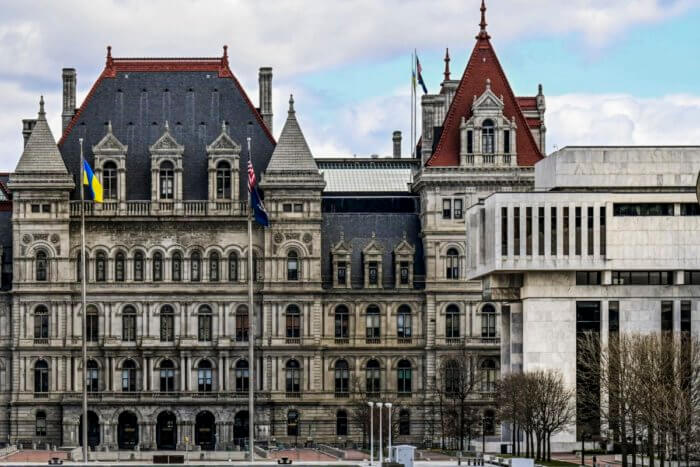
The Assemblymember-elect and his team did provide bank account statements addressed jointly to he and his mother at the Brooklyn address — though the report noted that those statements fell outside the 12-month period of time they were investigating — and as a number of signed affidavits from friends, family, and neighbors of Chang’s Brooklyn address on East 29th Street.
In one affidavit, Robert L. Morgan III, vice chair of the Manhattan Republican Party, said he attempted to recruit Chang to run for office in Manhattan in fall 2021 – but Chang declined because he planned to run in Brooklyn.
“During the conversations I had with Lester in November and December of 2021, regarding his interest in running for office, Lester indicated that he had moved his electoral residence to Brooklyn because he was spending more time there to care for his mother,” Morgan wrote.
In documents submitted to the Judiciary Committee and during a Dec. 15 hearing, Chang and his lawyers maintained that he lived primarily in Brooklyn for the year leading up to the November 2022 election — but kept the Manhattan address on file for his paychecks and other affairs for the sake of convenience and consistency.
Lawyer and political power broker Stanley Schlein served as special counsel for the Assembly — and pointed out during the hearing that Chang’s Manhattan apartment is rent-stabilized, and that by law, a rent-stabilized apartment must serve as the tenant’s primary residence.
The report does not make a recommendation on how the incoming Assemblymembers should vote.
“I’m here to tell you today that by November 2nd, 2021, I had determined that my permanent residence was in Brooklyn for all purposes,” Chang said at the hearing, per a transcript. “It is my primary residence today. Any allegation reported in the media that I fail to meet the residence requirement is based on rumor, insinuation, and not fact.”
The Assemblymember-elect and his legal team decried the investigation and the report — claiming the Judiciary Committee failed “to prove by clear and convincing evidence that Chang’s electoral residency was not in Brooklyn during the ‘relevant period.'”
“Chang testified as to his intent to make this home his electoral residence,” his lawyers wrote in the report. “Records, testimony and affidavits clearly established his actual presence at the residence. Any report presented to or on behalf of the Committee against seating Chang must be found to be a nullity. No proceedings based upon the fatally flawed record developed herein may be allowed to serve as a basis for denying Lester Chang the seat that he was duly elected to.”
The six Republican members of the Judiciary Committee more-or-less agreed, writing in a letter to Committee Chairman Charles D. Lavine that Chang met residency requirements – and that they felt the past Assembly lacked jurisdiction to rule on the qualifications of an incoming member.
“[Chang] won fair and square,” the members wrote. “He has provided substantial evidence of his intent and presence to justify the use of his Brooklyn address as his ‘electoral residence.’ He should be welcomed into the New York State Assembly.”
What comes next
What’s next for Lester Chang? It’s hard to say. Assembly Democrats — who make up the majority of the body — have yet to reach a decision on what to do, and reportedly did not plan to take up the issue on Jan. 4, the first official day of the 2023 legislative session.
Lester Chang officially has a name plate in the Assembly. That doesn’t mean he’s out of the woods yet, though. Assembly Dems still haven’t determined whether they will try to remove him. (They aren’t taking any action today.) pic.twitter.com/5KBDAFBlGv
— Jon Campbell (@JonCampbellNY) January 4, 2023
As long as the debate continues, so will Chang’s term. The Assembly will reportedly take a vote this month on whether or not to expel Chang, but, as of the end of the day on Jan. 4, no decision had been made. If the body eventually does vote to remove Chang — which would require a majority vote — a special election would be called in AD49. Republicans have pledged their full sport to Chang if he were to be removed.
“Should Assembly Democrats take the unprecedented step of denying Mr. Chang a seat, absent clear and convincing evidence that he resided outside of his district in the past year, our conference will commit our full support to re-electing him in a special election, with the hopes of not only restoring a duly elected member to the chamber, but also to ensure their vote becomes a true Pyrrhic victory for their party,” said New York City Council Minority Leader Joe Borelli in a statement.










